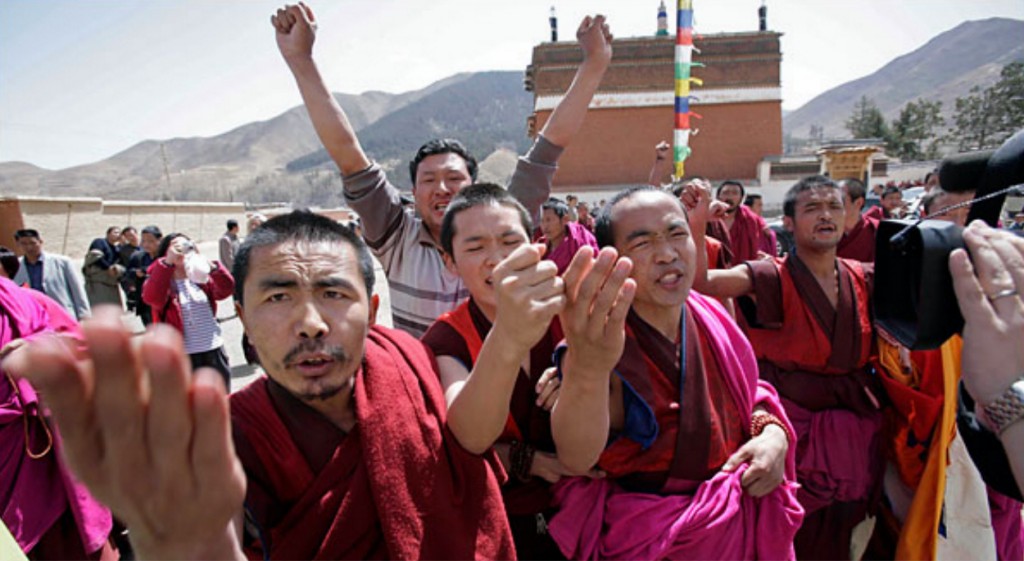Founded in 1709, Labrang Tashikyil Monastery is a Gelugpa monastery situated in the historical Tibetan province of Amdo, north-eastern Tibet. It soon developed into an influential Buddhist monastic university, receiving scholars from across Tibet and opening several satellite monasteries. It also became a centre of economic life for the surrounding lay community, collecting taxes, lending money and settling disputes.
Labrang Tashikyil Monastery was closed down for four years in 1958 following anti-Chinese demonstrations in the surrounding region. It was closed again during the Cultural Revolution and only reopened in 1980, when some of its damaged buildings were also rebuilt.
2008 Uprising Protests

Protest in Labrang monastery, 2008
Although it is now a popular tourist site, protected by Chinese authorities, who market the surrounding area as ‘Little Tibet’, Labrang Tashikyil Monastery has also been one of the focal points of Tibetan resistance. Hundreds of monks joined a mass protest in Labrang in March 2008 – part of the wider uprising against China that year. Several monks were detained and beaten. The following month, monks protested and flew a large Tibetan flag, prohibited under Chinese rule, during a visit by several foreign journalists. As a result of the protests the monastery was temporarily closed and 280 monks were arrested. Several other monks went into hiding with some eventually reaching safety in India.
Several prominent monks from Labrang Tashikyil Monastery also attracted the attention of authorities for their social activism, including Golog Jigme, a torture survivor now living in Switzerland, and Jigme Guri, who was sentenced in 2014 to five years in prison for “attempting to split the Chinese state”.
Free Tibet’s research partner Tibet Watch has published a comprehensive report examining the role of monasteries in defending Tibet – and the price they have paid in repression.
You can read the full report here, as well as the executive summary here.
[Content warning: the above reports contains graphic images of injuries that some may find distressing]

